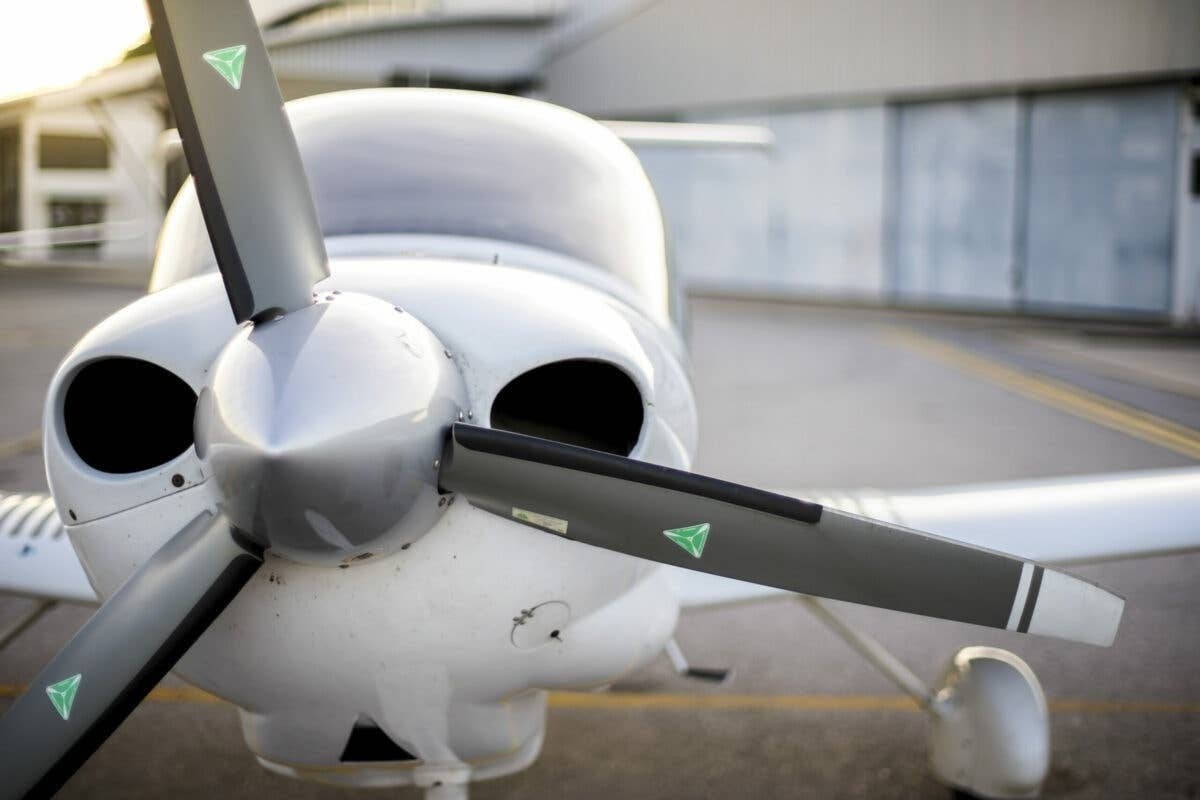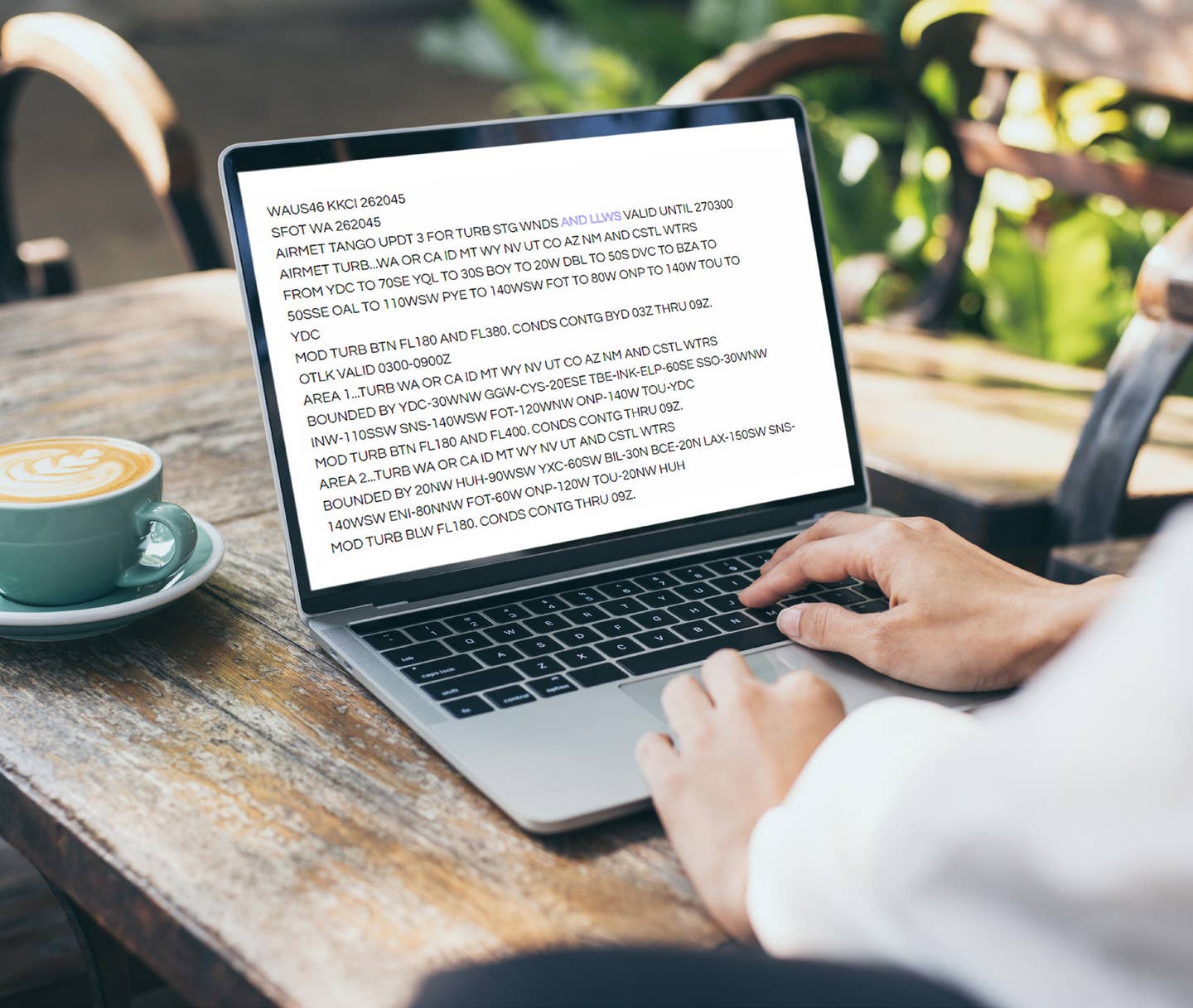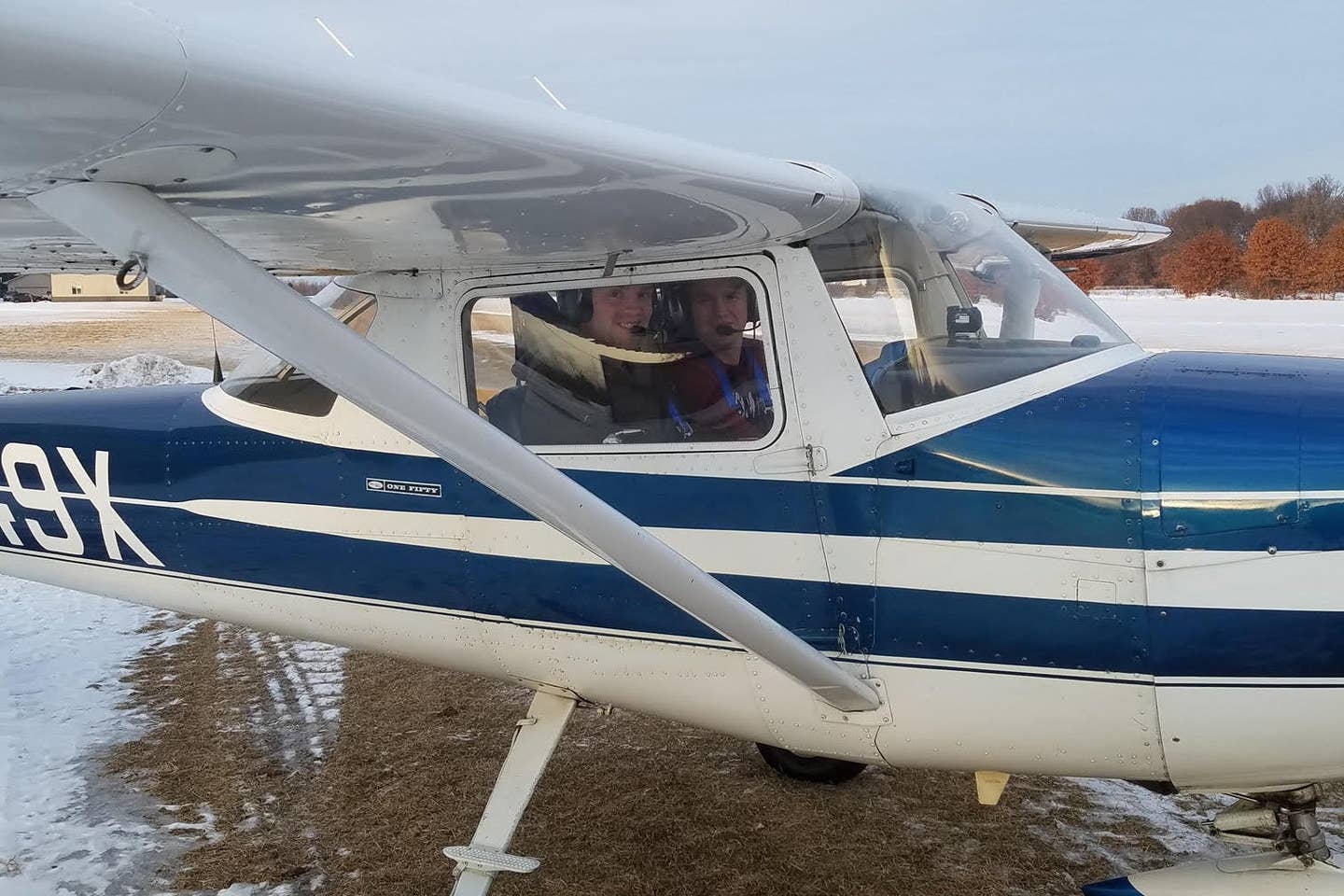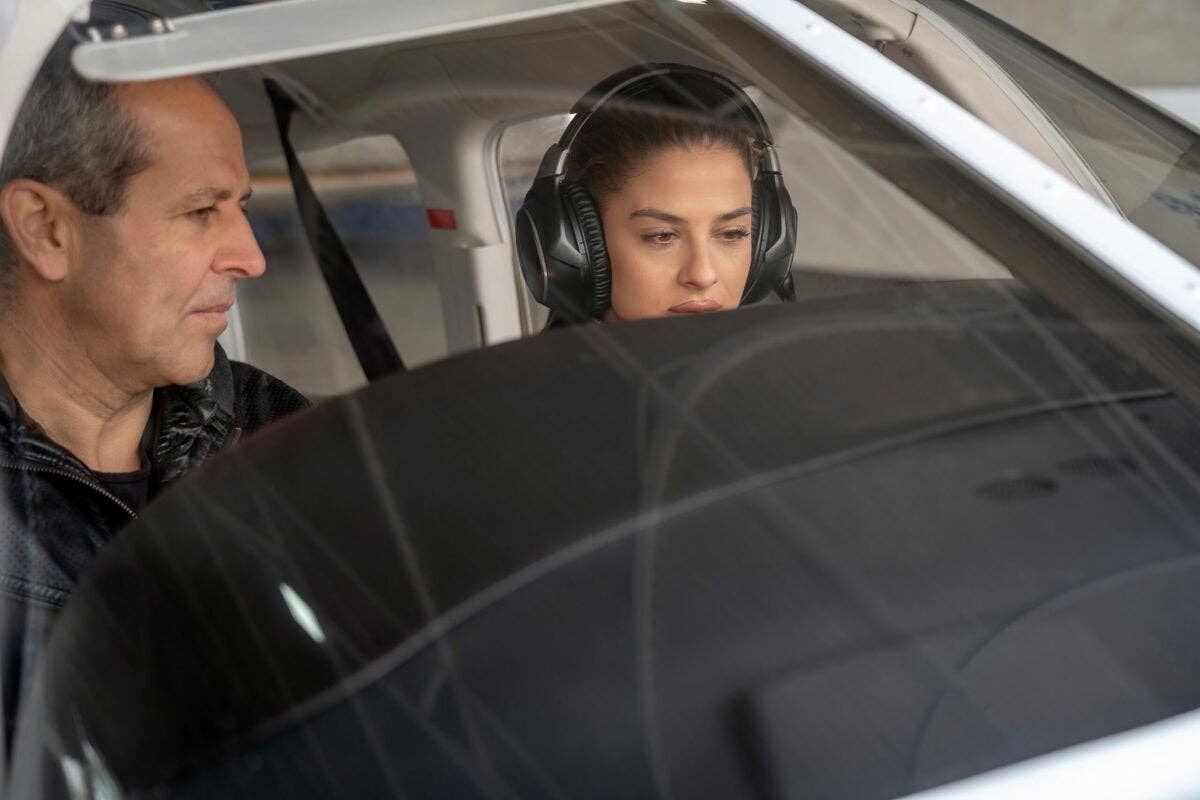
(January 2011) — I had just begun to fill up the tank on my truck for the drive to JFK when my cell phone rang. The caller ID displayed "Crew Sched."
"Great," I thought. I was probably going to be told that my trip to London was delayed. Nope. The news was something that I hadn't expected. My copilot had managed to sprain his ankle before leaving home. A reserve copilot had been called. Unfortunately, the reserve copilot was 30 miles from his house at the time he was contacted. He needed to return home in order to change and pack. And then he faced a two-hour drive to JFK. I would discover later that this was to be the first round of a copilot shell game.
Crew schedule relayed a request from the reserve copilot that I retrieve his company mail from Operations and bring it to the airplane. The request indicated that he already anticipated doing an O.J. Simpson through the airport. The task of preparing a 777 for a flight across the North Atlantic would have to be performed solo. Not a problem. I looked forward to the opportunity. My comfort level with the airplane had steadily been increasing. A solo preflight would test my familiarity.
More often than not, copilots tackle the entire preflight chore. If I chose to do so, I could arrive 15 minutes prior to departure and plop down in the left seat confident that my crew had completed all the preparation work. As much as I appreciate the efficiency of my copilots, allowing this to occur on a regular basis doesn't help a new guy become better acquainted with the airplane. Nor does it help with crew camaraderie.
I began the usual tasks in Operations earlier. Mailbox check. Jepp revisions. Weather check. Company e-mail. Flight plan review.
Crews on other European flights were preparing their trips for departure. And on this particular day, many of my friends and acquaintances were present. Although I focused my best efforts on work, a little socializing banter was unavoidable. Eventually, I found my way to the gate and the airplane.
Soon, preflight duties were complete, including the walk-around inspection and my standard briefing to 11 flight attendants. I glanced at the right seat. It remained empty. My copilot's journey was not progressing well. The copilot had timed his drive so as to maximize his encounter with peak rush-hour traffic. A truck accident on the Goethals Bridge didn't help matters.
While keeping me updated on his progress, the crew scheduler conveyed that the copilot had asked for me to call his cell phone number. I called and tried to reduce his stress level. He was doing the best he could. At 19:15, an hour past original departure time, John made his appearance on the jet bridge. Although his pace was hurried, his stride wore the confidence of a man with purpose. I shook his hand at the forward entry door, smiled and welcomed him aboard. Not much more needed to be said. Within 15 minutes of John's entry into the cockpit, we began our push-back.
Unfortunately, we added insult to injury for our already delayed passengers. We joined a long conga line of departing airplanes awaiting their turn for the use of 10,000 feet of concrete.
Other than an unusually quick series of radar vectors to Heathrow's Runway 9 Left, our flight across the North Atlantic was uneventful. The most arduous part of the trip was the trek through rush-hour traffic to the hotel.
It wasn't until after dinner that the copilot shell game continued. I had settled into my normal routine of finding an Internet-friendly Wi-Fi spot just outside the hotel crew room. John strode by with a perplexed expression, announcing that he had been reassigned to fly a trip to DFW and then deadhead home to JFK the next day. With that interesting news, I began to tap away on my keyboard. I discovered that a DFW-based first officer had replaced John. The DFW FO was to fly with me back to New York. That made no sense, but then I'm always two steps away from the big picture.
As we boarded the crew bus to Heathrow the next morning, I attempted to convince 11 well-seasoned flight attendants that I would be flying solo, but they weren't buying my story. I confessed that our copilot would be joining us from the airport hotel. Unfortunately, our driver didn't get the memo that he was supposed to be retrieving him. I didn't get the memo either. The driver never stopped at the airport hotel. Once the error was discovered via our London operation agents, the copilot was delivered directly to the gate.
I found Eric in the cockpit diligently preparing the airplane for our departure to JFK. As I suspected, he had a story to tell.
Eric had been in the middle of a six-day trip that involved a Chicago layover after returning from the first of two London layovers. His trip had originated from his base in DFW. After the Chicago layover, he was to fly back to London the following evening. Eric made an unfortunate discovery on the afternoon that he was being driven back to O'Hare with the rest of his crew. His credential wallet that held his pilot licenses and medical certificate was missing. He could only surmise that the wallet must have dropped out of his inside jacket pocket in the van on the way to the Chicago hotel the day before.
Once he arrived at the O'Hare terminal, Eric began a series of phone calls. First he called the transportation company asking to search the van from the day prior. The search initially turned up negative until another crew member gave an exact description of the van. Miraculously, and perhaps suspiciously, the wallet was then discovered. Eric advised the appropriate airline managers of the dilemma. Although they were authorized to fax an official copy of his FAA license, his medical certificate could not be duplicated. He would still not be legal to fly.
The transportation company was called again. The transportation dispatcher promised to mail the credential wallet within the week. Eric grit his teeth, explaining the legalities of not having a pilot's license in his possession. And then the dispatcher did his best to explain that two hours was the earliest he could deliver. A $40 tip - all that Eric had in his wallet — was offered but declined.
The airline flight dispatcher was advised of the latest development. Eric's flight would have to be delayed. Round three of the copilot shell game was about to be played.
The earlier Chicago to London flight had experienced a mechanical delay that postponed it until the following morning. As Eric completed the walk-around inspection, he was greeted on the ramp by another copilot. The other copilot was originally assigned to the postponed flight. He would take Eric's place. Eric would deadhead to London the following morning.
All that remained was for Eric to await the delivery of his credential wallet — which became an episode on its own. A black Mercedes with about 10 cell phones lying atop the dashboard pulled to the curb outside the O'Hare terminal. A large man with a heavy Russian accent stepped out. The man handed Eric his credential wallet. Eric expressed his gratitude. Gratitude was apparently not sufficient. The $40 tip that was originally declined became the cost of doing business.
The next day, just when life seemed to be working according to plan, Eric's deadhead flight developed mechanical issues. His arrival to London was delayed. He would not have his legal crew rest if he were to re-join his original DFW trip. That's why crew tracking had played the shell game by swapping John and Eric off their respective flights.
Although our return to JFK marked the end of Eric's pairing with me, it heralded one more round of the shell game. On the fourth day, the trip involved a turnaround to Miami. One more copilot was needed. And as fate would have it, copilot No. 4 was another Eric. I was grateful. My copilots were beginning to run together.
The round trip to Miami was accomplished without drama … well, maybe not. Hurricane Earl was just starting to affect the New York weather. The winds and the turbulence were giving not-so-subtle hints that the worst was yet to come. We arrived at the gate unscathed, nonetheless.
Then, just when I thought my escape to Connecticut and the balance of the Labor Day weekend would occur, I was greeted with the gift of a random drug and alcohol test. I was overjoyed.
I have always found the alcohol test curious. Why test for alcohol after I've risked the lives of 250 people? The response from my friendly test administrator was that an alcohol test prior to duty had the potential for delaying a departure, especially if the results were positive. Hmm … I'm missing something here. Isn't that the point?
As for the shell game, in 26 years of employment at the airline I have never seen circumstances dictate it being played to such an extent. Crew schedule and crew tracking deserve credit for creativity. Credit is also due our copilot ranks and their training. Because standardization is of major importance at my airline, the continuity of each leg of my trip was accomplished seamlessly despite the different personalities that occupied the right seat. That's very cool in my eyes.
Perhaps the next shell game won't be quite as entertaining.

Sign-up for newsletters & special offers!
Get the latest FLYING stories & special offers delivered directly to your inbox


![[PILOT AND SNELLEN CHART PIC]](https://www.flyingmag.com/uploads/2022/11/2022-FlyingMag.com-Native-Advertising-Main-Image--scaled.jpeg?auto=webp&auto=webp&optimize=high&quality=70&width=1440)



